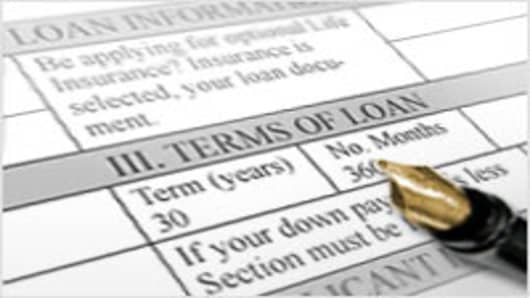Mortgage rates hit new lows and applications to refinance fell for the third straight week. It defies logic, unless of course you operate in today’s tight mortgage market.
It’s not just about the rate anymore. Negative equity, strict underwriting and big bank backlogs are keeping many borrowers from taking advantage of these incredibly low mortgage rates.
“If history is any lesson, the only thing that can really extend refi activity in a low rate environment is a loosening of underwriting standards to bring more borrowers into the market. And that is not likely to happen anytime soon,” said Guy Cecala of Inside Mortgage Finance.
Twice this year the market did see a surge in refinancing, all due to changes in government programs.
At the beginning of the year, Fannie Mae and Freddie Mac (still under government conservatorship), expanded the Home Affordable Refinance Program for borrowers who owe more on their mortgages than their homes are worth. The limit used to be 25 percent negative equity, but in January, that limit was lifted entirely.
Then in June, the FHA changed the rules on its streamline refi program for borrowers who already have FHA loans, dropping underwriting almost entirely. While both changes sparked temporary surges, they were not enough to serve the entire market.
“We are definitely running out of borrowers to refi even with mortgages rates at record lows. Most of the activity we have seen in recent months are the same borrowers who refinanced a year or so ago, refinancing again. While programs like HARP and FHA’s Streamlined Refi can provide a temporary surge in refis, they still only account for a relatively small share of borrowers,” Cecala noted.
Government-backed mortgages (Fannie Mae, Freddie Mac, Ginnie Mae) accounted for 58 percent of the $10.179 trillion U.S. mortgage market as of the end of March, 2012, according to data compiled by Inside Mortgage Finance.
Private-label mortgage-backed securities (MBS) investors held 10 percent and banks/other financial institutions held 32 percent. It’s that non-government, 42 percent of the market that is having the most trouble refinancing due to poor credit scores and negative equity. Lenders and investors are particularly risk-averse these days.
Thursday the Obama Administration will renew its push for a major refinancing program that would involve all loans, but it would need congressional approval. There are several proposals under consideration.
The “Responsible Homeowners Refinancing Act,” sponsored by Senators Barbara Boxer, D-Calif., and Robert Menendez, D-NJ, would expand the HARP program, extending streamlined refinancing for Fannie and Freddie borrowers and eliminating up-front fees and appraisal costs. Jaret Seiberg at Guggenheim Partners puts the odds of that passing at around 60 percent.
Seiberg is less optimistic about another bill that would allow non-agency mortgages refinance into FHA loans, regardless of negative equity. The bill would raise GSE (Fannie and Freddie) guarantee fees to offset its costs.
“MBS investors are likely in for a bumpy ride. As we believe Congress will not enact the legislation, there should not be any changes to prepayment rates. Yet the market is likely to react to every headline, which suggests significant volatility,” Seiberg wrote.
Still, the White House will hold a webcast Thursday with HUD Secretary Shaun Donovan, along with a consumer-friendly interactive refi website. This “Google+ Hangout” will be hosted by real estate website Zillow , and Zillow’s CEO Spencer Rascoff will join in the conversation. Donovan and Rascoff will answer consumers’ questions, knowing full well that the answer to many will be, ‘Right now you don’t qualify for a refinance.’
- By CNBC's Diana Olick
Questions? Comments? RealtyCheck@cnbc.comAnd follow me on Twitter @Diana_Olick



